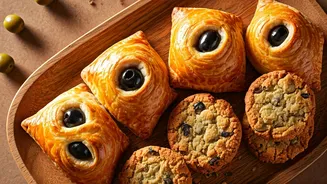The Hair-Growth Battle
Hair fall is a common concern, and it often becomes more pronounced during the monsoon. Several factors contribute to this issue, including increased humidity,
which can weaken hair follicles. Proper nutrition plays a pivotal role in maintaining strong, healthy hair. Hair, fundamentally, is made up of protein, making a protein-rich diet essential. The monsoon season, with its heightened humidity, can exacerbate hair fall, making it crucial to focus on a diet that nourishes the hair from the inside out. Incorporating the right foods ensures that the body receives the necessary nutrients to promote hair growth and combat hair fall. Moreover, a balanced diet also supports overall health, contributing to the overall well-being of the body, which in turn benefits hair health. Understanding the connection between food and hair health is the first step towards addressing hair fall effectively.
Protein-Packed Powerhouses
Protein is a fundamental building block of hair. Foods rich in protein are vital for hair health and growth. Start by integrating lean meats like chicken and turkey. Chicken and turkey offer high protein content, which your hair craves. Next, consider eggs, which are another excellent protein source and are packed with biotin, an important vitamin for hair health. Greek yogurt is also a smart addition to your diet; it offers not just protein, but also probiotics, which can indirectly benefit hair health by promoting a healthy gut. Lentils and beans are additional vegetarian choices. They are packed with protein and essential minerals. These foods work in tandem to provide the amino acids needed for strong, healthy hair. Make sure that you get a variety of protein sources to ensure a complete amino acid profile, supporting optimal hair growth.
Biotin for Boosting
Biotin, often called vitamin B7, is a critical nutrient for hair health. Biotin is involved in keratin production, which is the basic structural component of hair. Therefore, incorporating biotin-rich foods in your diet is essential for combating hair loss and encouraging hair growth. Eggs are one of the most readily available and richest sources of biotin. They provide a significant amount of this vitamin along with protein and other essential nutrients. Nuts and seeds, like almonds and walnuts, are also excellent choices, providing biotin and healthy fats that enhance hair health. Sweet potatoes offer a good dose of biotin, along with other beneficial vitamins. Avocados are rich in biotin and healthy fats, promoting overall scalp health, which in turn aids hair growth. These foods help boost biotin intake to stimulate the healthy growth of your hair, promoting its strength and resilience.
Iron-Rich Foods
Iron plays a vital role in the health of your hair. Iron deficiency often leads to hair loss. Foods that are rich in iron can help in preventing hair fall and in promoting growth. Dark, leafy greens like spinach are excellent choices as they are packed with iron. Lean meats like beef and lamb are also high in iron. These foods provide a readily absorbable form of iron, which is crucial. Fortified cereals and grains are also valuable choices, particularly if you have dietary restrictions. Lentils and beans offer iron along with protein and other beneficial nutrients. Consuming iron-rich foods helps to combat iron deficiency, a common cause of hair fall. Including iron-rich foods ensures that your hair follicles get an adequate supply of oxygen, which encourages healthy hair growth.
Zinc's Vital Role
Zinc is essential for hair tissue growth and repair. It plays a significant role in keeping the oil glands around hair follicles working properly. Adequate zinc intake is critical for maintaining a healthy scalp and preventing hair loss. Include zinc-rich foods in your diet to ensure that your hair remains healthy and grows well. Nuts, especially cashews and almonds, provide zinc, along with other essential nutrients. Eggs are another source of zinc, complementing their protein and biotin content. Seeds such as pumpkin seeds are also excellent choices. They offer a good dose of zinc. Incorporating these foods into your diet ensures that your body has the zinc it needs to keep hair follicles strong, promote hair growth, and maintain a healthy scalp.
Essential Fatty Acids
Omega-3 fatty acids, which are essential fatty acids, contribute to the health of your scalp and hair. They moisturize the scalp and may help prevent hair dryness and hair loss. Adding foods rich in omega-3 fatty acids can improve hair health. Fatty fish, such as salmon and mackerel, are excellent sources of omega-3 fatty acids. Including these in your diet can provide a significant boost to your hair health. Flaxseeds and chia seeds offer plant-based sources of omega-3 fatty acids. Walnuts are also a good option, providing both omega-3s and zinc. These foods support the overall health of your scalp and hair, helping in the fight against hair fall. A diet rich in omega-3s helps promote healthy hair growth.
Vitamin C's Antioxidants
Vitamin C is an antioxidant that helps protect your hair from damage caused by free radicals. It also aids in the absorption of iron, which is crucial for hair health. Therefore, include vitamin C-rich foods in your diet to support healthy hair growth. Citrus fruits like oranges and grapefruits are excellent sources of vitamin C. Bell peppers, especially red ones, are another good option, delivering a high dose of the vitamin. Strawberries provide vitamin C along with other beneficial nutrients. Including foods high in vitamin C helps protect your hair from damage. It also helps boost iron absorption, contributing to overall hair health and growth.
Vitamin D for Growth
Vitamin D is crucial for hair follicle cycling and growth. Deficiency can result in hair loss. Although food sources of vitamin D are limited, they should be considered. Fatty fish like salmon are a good source of vitamin D. Fortified foods, such as cereals and orange juice, may also provide vitamin D. While direct sun exposure is the most efficient way to get vitamin D, incorporating these foods into your diet can help in maintaining healthy levels of this important vitamin. Make sure to get a good amount of vitamin D to ensure your hair grows healthily and strongly.
Hydration is Key
Staying hydrated is an essential part of maintaining overall health, and hair health is no exception. Water is crucial for all bodily functions, including those that support hair growth. Drink adequate amounts of water every day to ensure your hair follicles stay hydrated. This simple act of hydration can help prevent dryness and promote healthy hair. Drinking enough water helps to maintain the scalp’s health. A well-hydrated body, in general, supports the proper functioning of all systems, including those related to hair health. Therefore, make sure to drink enough water to keep your hair healthy and strong.
Additional Tips to Remember
Beyond the food you eat, other factors can affect hair health. Regular exercise can improve blood circulation, promoting a healthy scalp and encouraging hair growth. Managing stress is also essential, as stress can contribute to hair loss. Consider incorporating stress-reducing techniques like meditation or yoga into your routine. Get enough sleep each night, as adequate rest helps your body repair and regenerate. Be gentle with your hair, avoid harsh treatments, and use gentle hair products. Lastly, consult a healthcare professional if you experience significant hair loss. They can help identify any underlying medical conditions or deficiencies that might be contributing to the problem. Implementing these tips along with a healthy diet can help improve your hair health during the monsoon season.











